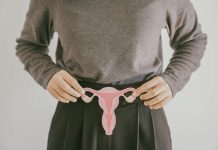Here, Dr Fiona MacRae, Women’s Health & Hormone Specialist at The Marion Gluck Clinic, provides an expert view on pregnancy, breastfeeding and hormones
Breastfeeding is the most natural way to nourish a newborn in the first months of life. “Breast is best” is the mantra, but best for who? Does the evidence vindicate the pro-breastfeeding movement? And if so, why does the UK have one of the lowest rates in Europe?
A source of nutrition for newborn babies
Human milk is undoubtedly the optimal source of nutrition for newborn babies. It is recommended that breast milk be used exclusively up to six months of age, followed by complimentary breastfeeding for up to 12 months and beyond. This is backed by several professional and medical organisations, including the World Health Organization (WHO), the Royal College of Paediatric and Child Health (RCPCH) and Public Health England (PHE).
In addition to the ideal balance of macronutrients, minerals and water, breast milk has anti-inflammatory, antibiotic and immunomodulatory properties that protect the developing infant from infections including gastroenteritis and diarrhoea; the potentially fatal gastrointestinal infection necrotising enterocolitis; middle ear infections, and urinary tract infections resulting in reduced hospital admissions for all causes of sepsis.
Breastfed babies are less likely to suffer sudden infant death, asthma, allergies, and dental malocclusion.
Breast milk is rich in digestive enzymes such as protease, which aids infant digestion, as well as growth factors, intestinal mediators, and amino acids to stimulate gastrointestinal function and the development of the gut microbiome. In addition, close skin-to-skin contact is thought to have neurobehavioural benefits and even analgesic effects, reducing stress and crying, especially in response to pain.
There are several attractive benefits for new mums and evidence-based health advantages. Initiation of breastfeeding is associated with a rise in oxytocin, one function of which is to contract the uterus and thus reduce post-partum bleeding. Breastfeeding affords a contraceptive advantage due to ongoing high circulating prolactin, which inhibits gonadotrophin release and ovulation. It is also key to post-pregnancy weight loss. More calories are burned in breast milk production whilst high circulating oxytocin stimulates fat burning.

Breastfeeding encourages the mobilisation and metabolism of visceral fat, reducing the incidence of type 2 diabetes. In addition, lactation improves glucose tolerance and insulin sensitivity. There is evidence that it reduces the production and release of the stress hormone cortisol. The reduction in stress continues for the duration of the breastfeeding period. Oxytocin also enhances the bonding between mother and babe, triggering positive emotions. There are also long-term benefits for mums who breastfeed; evidence supports reduced risk of breast, ovarian and endometrial cancer.
During lactation, it is vital to ensure a healthy, well-balanced diet of lean protein, oily fish, complex carbohydrates and plenty of fruit and vegetables. Adequate dairy intake provides essential nutrients such as calcium. Milk can be fortified with vitamin D, and some groups recommend that breastfed babies take additional vitamin D. Mothers on a restrictive diet, such as a vegan diet, may need to take vitamin B supplements during lactation. Overall calorie intake may need to be increased. Attention to maternal nutrition is essential for both mother and baby during lactation.
From an economic perspective, aside from the obvious financial savings for breastfeeding mothers, it is estimated that breastfeeding could benefit the NHS by reducing GP consultations and hospital admissions, not to mention the savings from reduced antibiotic use.
To what extent do women in the UK breastfeed?
In the UK, almost three-quarters of women choose to breastfeed when their child is born; however, around 40% stop breastfeeding within six to eight weeks. A survey commissioned by PHE uncovered various reasons, including maternal concerns that babies were not getting the right nutrients or that they may be under or overfeeding their babies. Pressure from helpful relatives may push new mothers to supplement breastfeeding with formula, but this only serves to undermine milk production, which is triggered by suckling.
There are also societal attitudes that can increase discomfort when breastfeeding in public. 63% of women polled by PHE said they would feel embarrassed breastfeeding in front of strangers. The prevalence of breastfeeding is particularly low among young mothers of lower socio-economic groups. Clearly, given the benefits described, this disparity will cause an increase in health inequalities, and this is a PHE concern.
Key messages for health professionals
RCPCH outlines key messages for health professionals stating that “all child health professionals have a responsibility to be aware of specialist advice and local services to support breastfeeding, in order to signpost mothers effectively”. (1) Interestingly the promotion of infant formula and provision of free formula samples to new mothers is now banned by WHO. Of course, some mothers cannot or choose not to breastfeed, and this must be respected, but because of health and wealth benefits, breastfeeding is actively encouraged and supported by the medical profession. This often requires ongoing encouragement and reassurance for young mums. Babies are clever little beings and are quite capable of satisfying their own needs, given a conducive and supportive environment. As we have seen, many mums choose to breastfeed initially but then drift to formula. It is here that timely support from a sympathetic health visitor could make all the difference.
There may also be a place for hormonal support. It is estimated that as many as one in seven new mothers experience post-partum depression (PPD) due to falling progesterone. Breastfeeding mums have a lower incidence of PPD, and PPD is associated with decreased incidence of breastfeeding. Progesterone is a feel-good hormone, and transdermal application in selected women provides a safe and natural approach to PPD leaving mums happier and better able to care for their babies, including successful breastfeeding.
Contributor Details
Editor's Recommended Articles
-
Must Read >> Breast milk may protect babies against COVID-19















